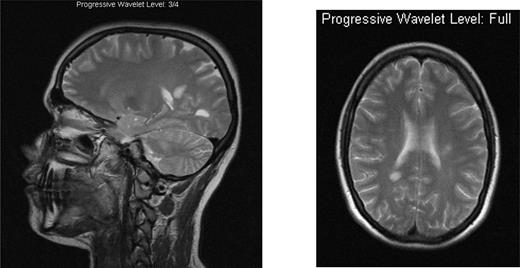-
PDF
- Split View
-
Views
-
Cite
Cite
V. Limmroth, C. Thimm, T. Hudde, T. Fuchsluger, I. Wanke, Cerebral MRI is necessary in patients with rheumatoid arthritis and uveitis before undergoing therapy with TNF-α blocking agents, Rheumatology, Volume 44, Issue 11, November 2005, Page 1373, https://doi.org/10.1093/rheumatology/kei158
Close - Share Icon Share
Optic neuritis (ON) is often the first symptom of further demyelinating events within the central nervous system (CNS), eventually developing into multiple sclerosis (MS). As for rheumatoid arthritis (RA), TNF-α was considered to be the key mediator of the inflammatory response in autoimmune CNS disorders, such as MS. Subsequently, TNF-α-blocking agents were suggested as potential therapies for MS and related disorders. However, large clinical trials in patients with MS revealed that TNF-α-blocking agents, such as lenercept, cause an increase in both relapse rates and MRI lesion load. A recent study from our group suggests that up to 30% of patients with uveitis carry clinically silent inflammatory lesions at the time of presentation, as visualized by MRI, suggestive of a chronic inflammatory disorder of the CNS.

The cases reported by Tauber et al. in Rheumatology (2005;44:405) now provide additional evidence for the failing dogma that TNF-α is a purely inflammatory cytokine. The cases suggest that, in contrast to the joints, TNF-α plays a pivotal role in mechanisms of myelin repair within the CNS. Subsequently, given the high comorbidity of uveitis with ON/MS, we suggest that patients with both RA and uveitis should undergo cranial MRI and should be examined by an experienced neurologist in order to avoid activation of clinically silent inflammatory disorders of the CNS by TNF-α-blocking agents.
The authors have declared no conflicts of interest.




Comments